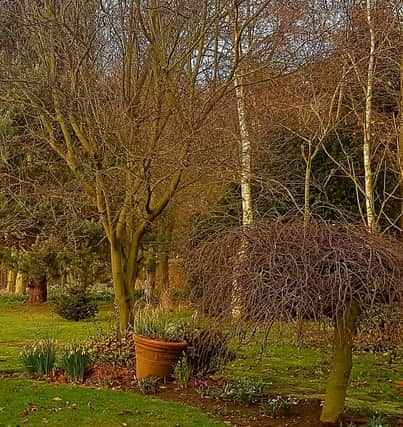Simple steps to your own eco-garden


A beautiful garden can also quite easily be made in to a thriving ecosystem and wildlife haven.Companion planting is about keeping plants that benefit each other, and inter-planting is another good strategy, as it combines plants whose growth and maturity cycles complement each other, for example, by providing shade or loosening earth.Bees are vital for the pollination of many plants, and a good eco-garden provides plenty of plants for them to feed from.Composting, bird feeding and good use of water will all also help to turn a garden into a planet-friendly ecosystem.A spokesperson for GardenBuildingsDirect.co.uk said: “Some people say that a garden is never truly your own – there are lots of other beings living there as well.“There are so many environmental benefits to an eco-garden, and you’ll get the added pleasure of knowing you’re playing a part in helping many plants and animals who need the eco-system.”A classic example of companion planting is garlic and roses; the pungent smell of garlic is known to repel pests that attack roses. Carrots and spring onions are another good combination; each plant has a smell that repels the other’s pest flies.You can maximise garden space by inter-planting different crops that work together with their growth cycles. Small, faster growing plants can go in spaces between larger, slower growing ones. Classic combinations include radishes and carrots (radishes mature first and will thin the earth) and onion and cabbage. The onions will grow and mature, and then cabbage will provide shade.Compost is one of the best additions to an eco-garden, bringing nutrients and micro-organisms to soil. Don’t use meat or fish leftovers, as they attract pests and vermin.Bees are crucial pollinators. Make your garden a bee haven by avoiding pesticides, having water available and keeping plants such as lavender, honeysuckle and foxgloves.Birds can experience food shortages at any time of year. You can buy commercial bird feed, but you could also put out mild grated cheese, fat from unsalted meat cuts, cooked potatoes and sunflower seeds.A pond will help to attract frogs and newts, as well as water plants.Save water by using a butt to collect rain for your plants and lawn.